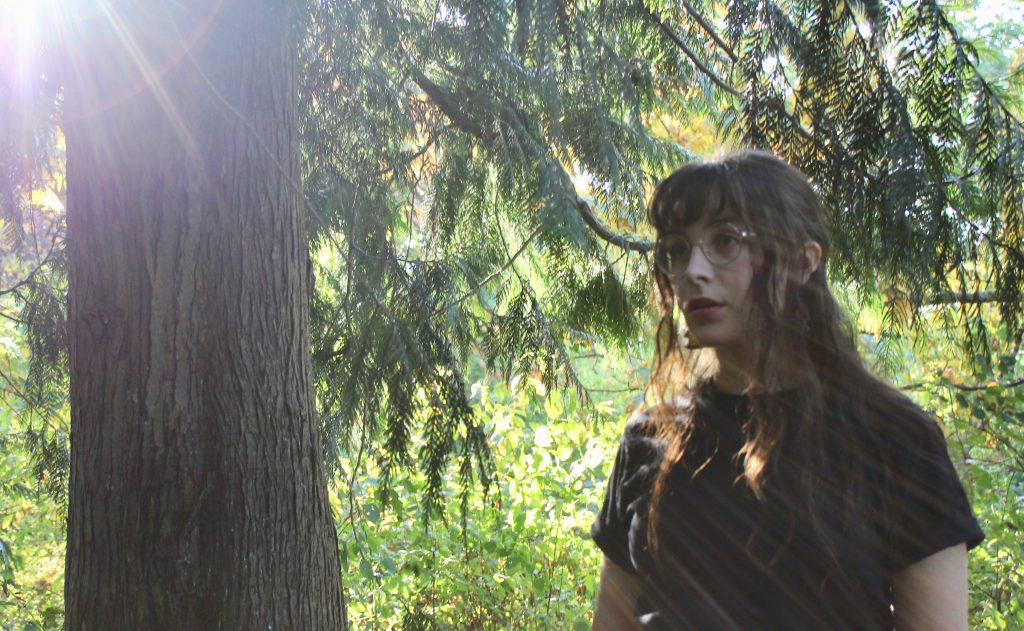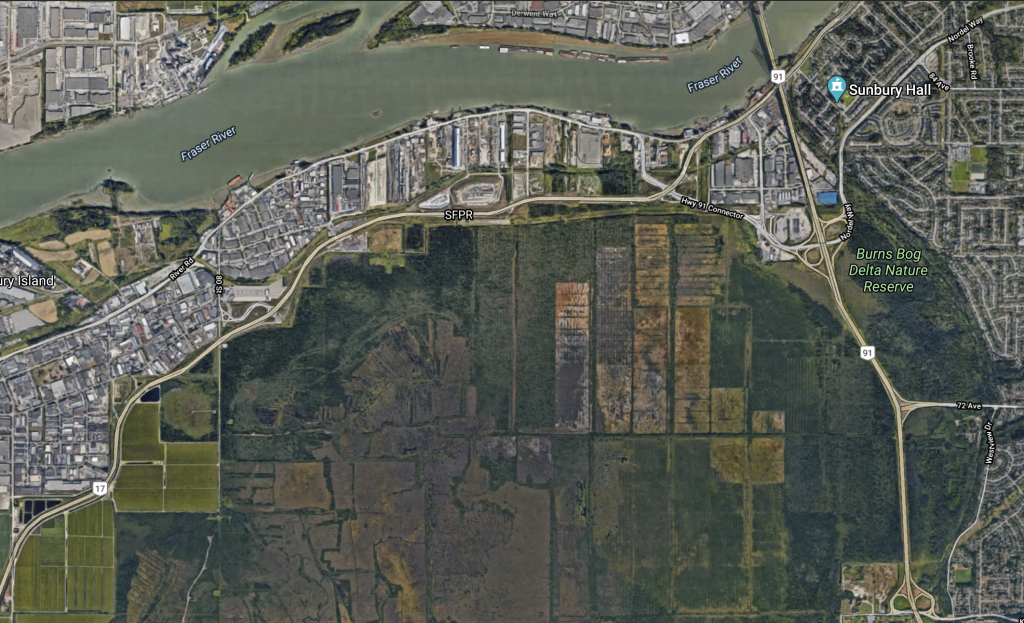Hi folks, I’m Bayleigh Marelj, the Digital Communications and Community Outreach Assistant for Georgia Strait Alliance this summer.
Before I talk about what the Digital Communications and Outreach Assistant means (I know it is a long title), I thought I would tell you a little bit about myself.
My background & the bog
By the roughest of estimates, I have never lived more than three kilometres from the ocean. Though for the first eighteen years of my life I had no choice in the matter, it is a force of habit now. Whenever I am inland for too long I feel trapped.
I grew up as an uninvited guest on the Salish Sea and aside from a few years in K’jipuktuk (Halifax) where I studied journalism, I have lived here my whole life.
In my time living here, I have seen profound changes both in the landscape and in the way people talk about it. Some of these changes have brought bitterness, others, joy. Though memory fails me often, I can say with confidence that one of my earliest heartbreaks was witnessing the ongoing loss of Burns Bog.
For those of you unfamiliar, according to the city of Vancouver, Burns Bog “is a 5000-year-old raised bog located near the mouth of the Fraser River in the Municipality of Delta, British Columbia.” It is known by some conservationists as “the lungs of the Lower Mainland.” The bog has made a car window appearances in many cherished family excursions, and some other, rather mundane trips to the mall.
According to the Burns Bog Conservation Society, the biggest threat to the bog is fire. In the last thirty years, the bog has experienced seven major fires. They say that “while fires naturally occur in terrestrial systems, the rate of fires far exceeds what is expected in a healthy wetland” and that negative human interference is the root cause.
In fourth grade I walked the wood-planked trails of the bog with my friends, singing loud enough to drown out the birds. When I returned home, red-faced and tired, my mother told me stories of what it used to be like. I learned of her childhood in the woods, and how my experience, which she had to chaperone, paled in comparison. She may have broken my little heart but she also taught me how to tell an impactful story.
It is moments like these that made me who I am, the little times that you forget to mention on first dates and in first introductions. They change the way you think of the world.
So how do I think of the world?
At my core, I am a storyteller. I’m sure if you have a writer in your family, you’ve heard that before. As a twenty-something, I am still figuring out what it means. I am also a journalist. Thought these two things are related, being a journalist is not what makes me a storyteller. I want to talk about that.
If I’m a storyteller at my core, then when did I become one? Certainly not when I got my first writing job. Otherwise, I’ve been a storyteller for no more than three years, and that hardly seems right.
So what makes a person a storyteller?
Truthfully, I believe that everyone has the requisite qualifications to be a storyteller from birth. The problem that we face is one of valuation, just as much as definition. Societally, we only value a small subset of the stories told, and therefore only a small subset of storytellers.
Many people are hesitant to define themselves as storytellers unless they are getting paid to tell stories, or they spend much of their time dedicated to telling stories. This ties into how we think of money, but I don’t have time to get into that. I know that my peers and I agonize over who is a “real” writer. We often find ourselves lacking. Though I understand that there is a certain responsibility that comes with a label, it usually comes down to who is making money for their stories. That’s a problem.
How are the stories that I choose to tell more valuable than anyone else’s?
They’re not.
So what does all of this have to do with climate or environmental advocacy?
As my colleague, Gillian said in her February blog post, “climate accountability means communities of care.”
One of the best ways we build these communities is by telling stories.
It is my belief that if more people were given the opportunity to see themselves as storytellers—to take on that term and all of the responsibilities associated with it—this community building would be a little easier. If we were all considered storytellers, we would need to consider each person’s stories as inherently valuable. I hope that, by extension, we would treat each person, each life, as necessary and precious.
I know that many other people share this worldview already, so it may seem moot. My voice is being added to the pile because I firmly believe that one of the most devastating tricks of colonialism is the idea that some people’s stories are more worthwhile than others.
My teachers taught me that a good storyteller is always asking questions. “Why do I know what I know? What assumptions am I making? Can I listen better?”
To change our perspective, we would need to learn to more deeply critique our own ways of knowing. This would also require people in positions of power to question and dismantle what originally set them apart. There is a societally dominant way of knowing. We need to confront that and make space for other ways of knowing, especially Indigenous ways of knowing. There are no simple solutions to the problems that we face, but this may be a start.
My role
With all this in mind, I have framed my role as the Digital Communications and Outreach Coordinator as a way to help others tell their stories.
Though yes, some of this help consists of spreadsheets and Instagram posts, I also get to help with the production of a new podcast about the Salish Sea. This is a project that I am particularly excited about, even though I won’t be around to record any of the episodes this fall. The human voice is a bridge builder and we have a lot of deep water to cover.
As the summer ends, I am trying to keep in mind that while my job at GSA may be ending, my responsibilities as a caring member of this community will just be beginning.
My contribution may be minuscule next to the work of others, in particular, when I keep in mind the First Nations peoples who have cared for and continue to protect this land. They are the true stewards of this land, they know it the best, and they are its closest relatives.
Throughout all of the changes, both joyful and bitter, I want to help preserve what makes this place special. The Salish Sea may not be the one of my childhood, but I hope that in one way or another, the stories I share will help it live on.



I strongly agree that if we had the grace to listen to the stories of others, particularly those who have had a different experience than ours, our lives would be enriched.